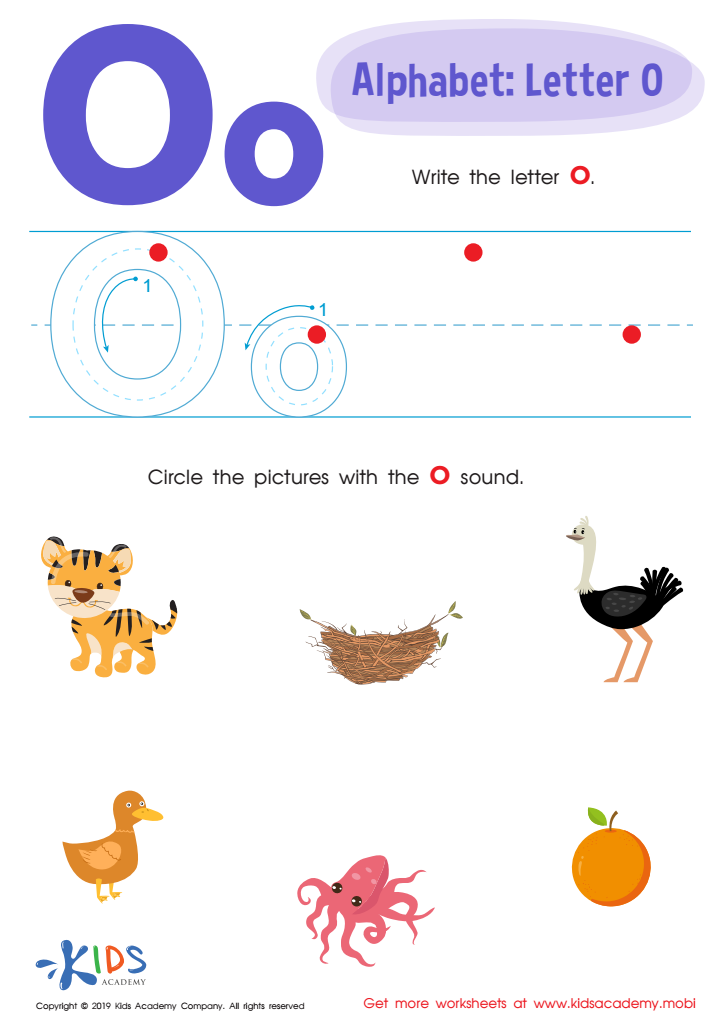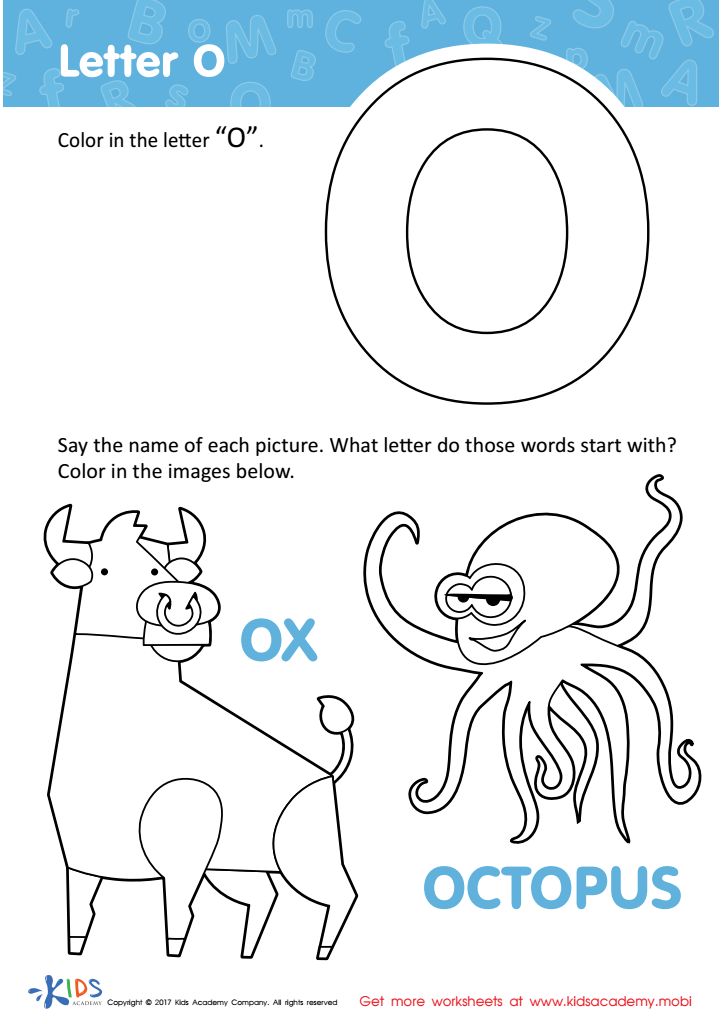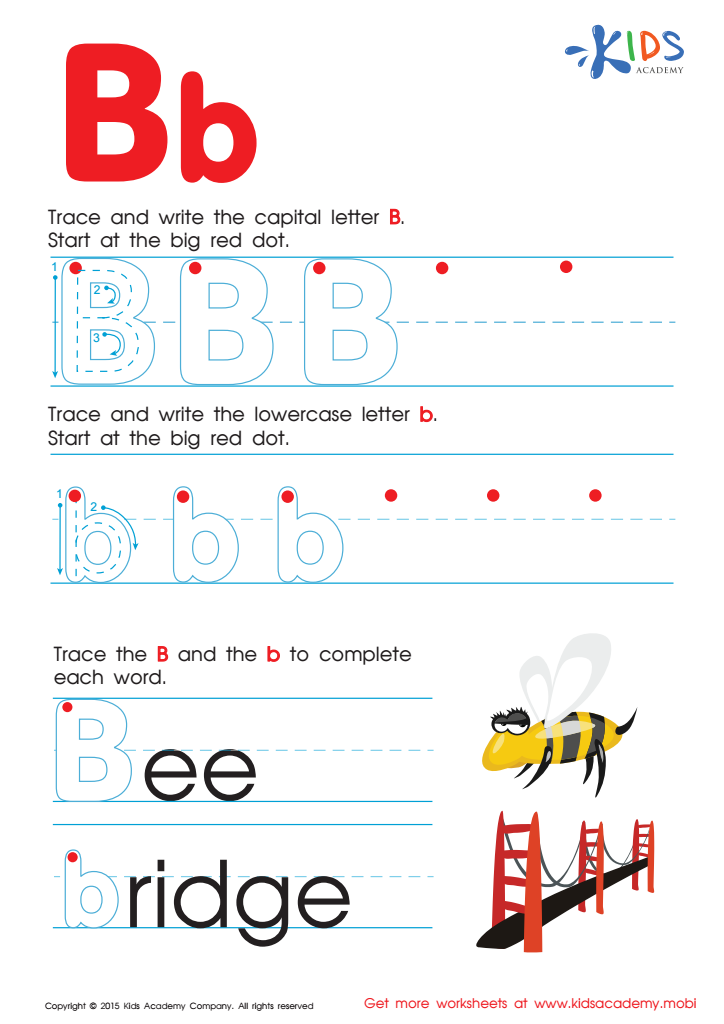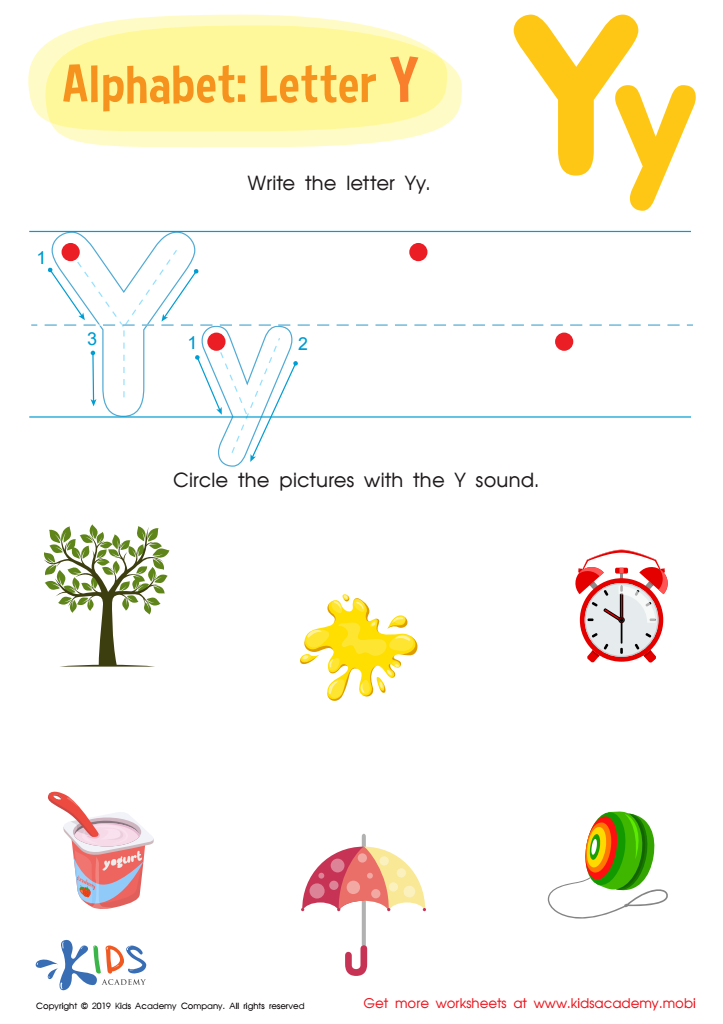Motor skills development Alphabet Worksheets for Ages 4-6
5 filtered results
-
From - To
Explore our engaging Motor Skills Development Alphabet Worksheets designed specifically for children ages 4-6! These interactive resources aim to enhance both fine and gross motor skills through fun and educational activities centered around the alphabet. From tracing letters to practicing proper handwriting techniques, young learners will develop coordination and dexterity essential for their academic journey. Each worksheet is thoughtfully crafted to captivate children's interest and encourage a love for learning while improving their motor abilities. Perfect for guardians and educators, our worksheets are a powerful tool in nurturing essential foundational skills. Download now and watch young minds grow!


Letter H Tracing Page


Letter O Tracing Worksheet


Letter O Coloring Sheet


Letter B Tracing Page


Letter Y Tracing Worksheet
Motor skills development is essential for children aged 4-6 as it lays the foundation for their academic, social, and physical growth. During this age, children are rapidly improving their ability to move and control their bodies, with motor skills categorized into two types: gross and fine motor skills. Gross motor skills involve larger movements such as running or jumping, while fine motor skills include smaller actions like writing or using scissors.
Parents and teachers should recognize that strong motor skills contribute to a child's confidence and independence. For instance, children with well-developed fine motor skills can successfully engage in activities like drawing or buttoning their shirts, fostering a sense of accomplishment. These skills are also essential for academic tasks, such as writing the alphabet.
Moreover, motor skills development enhances cognitive functions; by engaging in physical activities, children improve focus, attention, and problem-solving abilities. Furthermore, collaborative activities promote social interaction, teaching children essential skills like sharing and teamwork.
By prioritizing motor skills in early education, parents and teachers support a well-rounded development, encouraging children to explore and engage with their environment confidently. This investment in their early years sets the stage for lifelong learning and healthy physical activity habits.
 Assign to My Students
Assign to My Students




.jpg)










